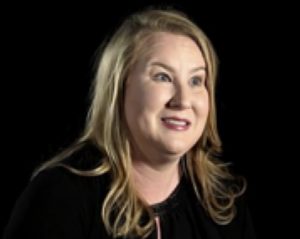5 Most Important SEL Skills for Digital Citizenship

Guest Blog post by Carrie Rogers-Whitehead, CEO and Founder of Digital Respons-Ability, a research-based provider of digital citizenship education. Digital Respons-Ability provides digital citizenship and parenting classes to schools and organizations. Carrie is the author of Becoming a Digital Parent: A Practical Guide to Help Families Navigate Technology and the soon to be published title The 3Ms of Fearless Digital Parenting: Proven Tools to Help You Raise Smart & Savvy Online Kids
Educators recognize the importance of digital citizenship, the ethical and responsible use of technology. But how can we effectively teach it? How can we go beyond basic understanding to actual practice? How can we actually change digital behavior?
These are big questions, ones that educators, doctors, parents, politicians and many others ask.
People are complicated, and the reasons for our behavior are multi-faceted. We may behave one way because we’re tired, there’s bad weather, we watched a scary movie, we’re hungry or some random occurrence. As much as we like to believe that we are rational creatures who thoughtfully make decisions based on the evidence—we’re guided by many biological and situational factors.
Despite science understanding that humans are variable and multiple factors influencing our behavior—we act as if we are simple machines. We think that if we push the right lever we’ll get the same output every time. We use slogans, New Year’s resolutions, hashtags, memes, entertaining talks and other strategies to change other’s behavior. A teacher may think, “well we’ve gone over this in class” and consider the matter done.
I wish it was simple, that just by conveying knowledge about digital behavior would make that change. But, as much willpower as we think we have, all those forces—the weather, our bodies, media etc. influence our behaviors. It’s like pushing against a wave. You can make some incremental progress, but at any point the ocean may throw a big one your way and knock you way back.
So how do we change our behavior? How do we push through those waves? The answer is skills. If we know how to swim we can make more progress through the ocean. If we have other social emotional skills like self-regulation, self-efficacy, emotional awareness and critical thinking we can also stick to our goals through all other life’s influences.
From my and Digital Respons-Ability’s work with tens of thousands of students and parents we’ve honed down some top skills, those social emotional learning skills. We still have lots to learn, but this is what we’ve discovered.
- Ability to transition- The internet throws a lot at us. If we cannot shift our focus and ignore distractions we can get thrown off by the tide.
- Self-efficacy- Research that has found that people who have high self-efficacy are more likely to view hard tasks as something to be mastered, rather than avoided. Those individuals who possess self-efficacy do not self-blame.
- Critical thinking- Students are deluged with information and the ability to evaluate all that media in an unbiased manner is crucial to be both media literate and a digital citizen.
- Digital Empathy- When online we are continually interacting with strangers and don’t have the context of their life story, gestures, nonverbal cues and more to make decisions. Digital empathy assumes best intent as well as understanding that others online may respond and feel differently to the same media we consume.
- Self-regulation- In my opinion this is the most important of the 5 SEL skills listed. The ability to monitor moods, stimuli and create healthy boundaries is essential to be a digital citizenship.
The internet is full of waves that can toss us side to side. But when we teach digital citizenship we just focus on the waves—the height of them (“here’s this internet danger!”) or the composition of them (“look at all these things online!”) rather than something that actually help (“here’s how to swim”). To change behavior, we have to develop the skills to change our behavior. Let’s work together to build skills, to build strength, and help students swim on their own.
Catch Carrie’s recent SETDA webinar titled “Maximizing 2021 ESSER Funding to Prioritize Social Emotional Learning and Digital Citizenship.”
